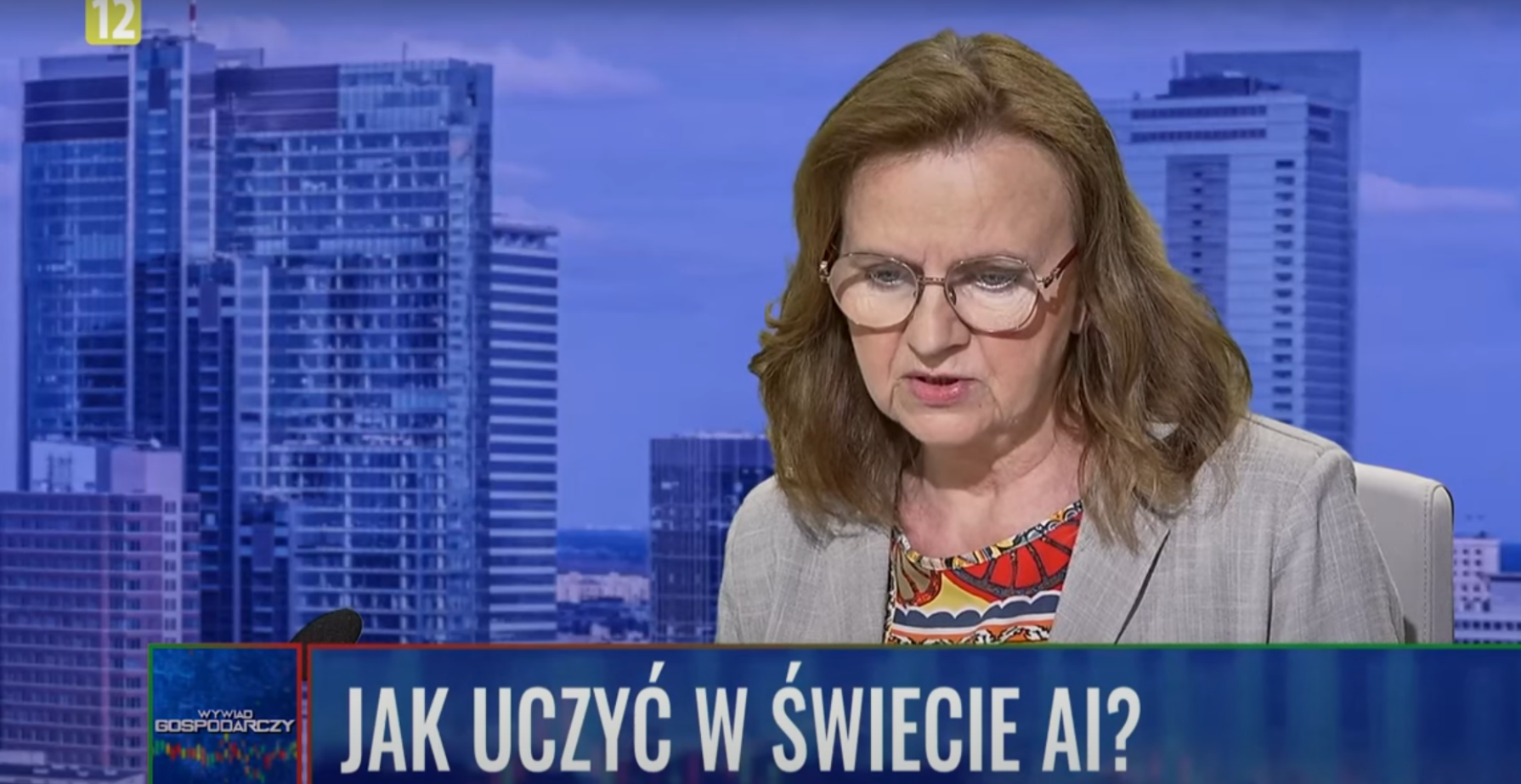“The Nicolaus Copernicus Superior School (SGMK), founded as a tribute to Nicolaus Copernicus on the 550th anniversary of his birth, educates in the key disciplines for the State and economy. SGMK established colleges dedicated to the development of economics, finance, legal sciences, philosophy, theological sciences, astronomy and medicine,” said Prof. Gertruda Uścińska, Rector of the Nicolaus Copernicus Superior School during her interview for the Economic Interview on the wPolsce.pl web TV.
SGMK: internationality, interdisciplinarity, high quality of teaching
“The School is authorized to award doctoral and postdoctoral degrees in these disciplines. According to the law, it has a Category B+ and it should undergo the first evaluation in 2026, this is the perspective for the nearest future. In addition to the well-functioning doctoral school, we will also launch full-time first and second degree programs,” informed Prof. Uścińska.
She stressed that SGMK students and doctoral students have unprecedented access to the achievements, knowledge and experience of prominent foreign experts: “About 50% of them represent top international universities; students don’t have to travel to Princeton, Stanford or Oxford – our goal is to attract and invite visiting lectures to the university in Poland.”
Integral view of science based on Copernican concepts
During the interview, the SGMK Rector mentioned a recent visit of Prof. Paul Krugman’s at the closing ceremony of the SGMK 2023/2024 academic year: “The fact that Prof. Krugman is considering continuing cooperation with SGMK, also shows that the concept of an integral view of science with reference to the Copernican concept is considered desirable and still relevant.” She also reminded that admissions are currently underway for the second edition of the doctoral programs in the elite disciplines: law, economics, finance, philosophy, medicine, astronomy.
Social changes and education
Prof. Uścińska also touched on a broader issue, which was pointed out by Prof. Krugman and announced by the European Commission – the decline in fertility and the subsequent loss of about 17 million people of working age in Europe by 2040: “In many EU countries, we see a decline in the number of children who start basic education, the future students. Countries are coping in different ways. They are trying to focus on higher efficiency and adapting to changing working conditions.”
“One of the crucial things for the Nicolaus Copernicus Superior School is the interdisciplinary approach. In the future there will be, for example, a sizable component of law in various aspects in the study of economics and finance. There is a huge demand for such an approach. From the perspective of demographics, aging populations, there is a demand for new professions, specialties using new technologies, artificial intelligence. Universities are able to benefit from good reporting on the state of the country’s demographics, both analyzing crises and looking ahead to the future.”, explained Prof. Uścińska.
Cooperation between business and science
According to Prof. Uścińska, we need to look at both the near and the far future: “Business and science will have to be in a very close relationship, as is happening, for example, at Stanford, if we look at programs such as management, finance, economics. You change the learning outcomes, the competency, the knowledge, depending on how the reporting is done by the different kinds of designated institutions. This is a certain standard to strive for. In 2050, majority of the available workers will be 50-55 years old, and in 2040 it will only be people a little younger. There is a need to return to the concept of lifelong learning, which is what is happening in market economies. Skills need to be upgraded, changed, or there needs to be a career reorientation, adapting to the labor market. This is a task for universities, for employers, but also for the state, which should be the coordinator of these various initiatives, as well as co-participant in these processes.”
“In today’s world there is a great demand in various fields for teaching management skills; not only for teaching teamwork skills, but for educating leaders, managers. This applies not only to management faculties, but also to many others including legal, social sciences, where such competencies are needed.”, stressed Prof. Uścińska.
We invite you to listen to the full interview.




